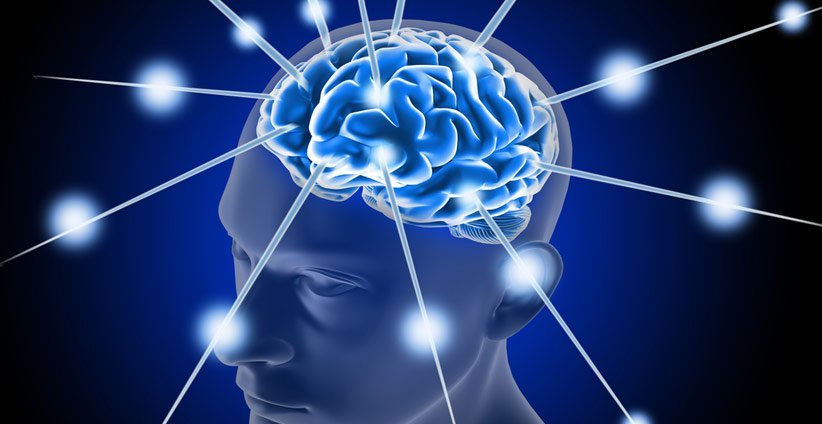
Gluten Often Causes Brain Symptoms, Not Gut Symptoms
Despite well-established research, few people know the common neurological consequences of gluten
Datis Kharrazian Aug 4, 2022
One of the scariest ways gluten impacts the brain is when the immune system mistakes brain tissue for gluten and attacks and destroys the tissue.(Monkey Business Images/Shutterstock)
Research shows most cases of gluten sensitivity manifest in the brain—not the gut. In fact, gluten’s impact on the brain is so well established that some researchers refer to gluten sensitivity as a neurological disease.
Gluten is one of the most immune-reactive foods—no other food is more of a trigger for neurological dysfunction and neurological autoimmunity than gluten, notes a research review published in the World Journal of Gastroenterology.
This stems in part from the intimate relationship between the gut and the brain. The foods we eat and our gut health have a profound impact on brain health.
For instance, studies show immune cells in the gastrointestinal tract called enteric glial cells trigger the brain’s immune cells, or astroglial cells, notes another review, published in Science.
This means gut inflammation and food sensitivities can cause brain inflammation and trigger brain autoimmunity, accelerating brain degeneration and causing a wide range of symptoms, depending on the person.
Symptoms can include:
- Depression
- Brain fog
- Memory loss
- Anxiety disorders
- Cognitive decline
- Irritability
- Poor focus and concentration
- Neuromotor issues
- Psychiatric disorders
- Early hearing loss
- Neuropathy
- Dementia, and so on.
Gluten Causes Brain Problems, Not Gut Problems: Study
Most neurological literature shows that gluten sensitivity can be primarily—and at times exclusively—a neurological disease, finds a research review published in the Journal of Neurology, Neurosurgery and Psychiatry.
You don’t have to have celiac disease for this to be the case, as it also holds true for nonceliac gluten sensitivity. However, celiac disease can also present solely as neurological symptoms.
Research shows that only 13 percent of people who have gluten ataxia (an inflammatory brain condition caused by gluten) have gastrointestinal symptoms. Almost 90 percent of these individuals didn’t have any gastrointestinal complaints at all, found a study published in the journal Brain.
When either celiac disease or gluten sensitivity causes brain symptoms, a strict gluten-free diet can bring about a profound reversal of symptoms.
You may also need to remove dairy from your diet, as it cross-reacts with gluten, meaning the immune system mistakes dairy for gluten due to the similarity of amino-acid sequences, notes a study published in Food and Nutrition Sciences.
Most Doctors Overlook the Impact of Gluten on the Brain
Published research and laboratory investigations have found that gastrointestinal inflammation from gluten sensitivity can lead to white matter lesions in the brain. White matter lesions are areas of damage seen on MRIs in neurodegenerative conditions such as multiple sclerosis. Even inflammatory bowel disease has been shown to cause white matter lesions due to the gut–brain relationship, or gut–brain axis.
Even though research has established a link between gluten and neurological diseases, most doctors overlook this mechanism in clinical scenarios.
Neurologists typically don’t look at gastrointestinal mechanisms—they don’t do gastrointestinal or food protein sensitivity testing, and they don’t evaluate for celiac disease. Those matters are left to the gastroenterologist.
However, because most people with neurological problems don’t have gut complaints, they don’t land in the office of a gastroenterologist.
Also, the standard health care model usually only considers celiac disease and not gluten sensitivity.
Standard Gluten Sensitivity Testing Misses Most Diagnoses
Standard testing for gluten sensitivity falls short. That’s because it only tests for alpha-gliadin. In reality, people can have an immune reaction to many different compounds in wheat. To truly screen for gluten sensitivity, you need to test for immune antibodies to all of these compounds.
Wheat is made up of more than 100 different components that can cause a reaction, not just one. A person can react to one of the many proteins in wheat, or a combination of proteins, peptides, and enzymes associated with wheat.
It’s best to screen for other immune-reactive compounds associated with gluten besides just alpha-gliadin. These include wheat germ agglutinin, native and deamidated alpha-gliadin, gliadin toxic peptides, gamma-gliadin, omega-gliadin, glutenin, gluteomorphin, prodynorphin, and transglutaminase 2, 3, and 6.
It’s also ideal to screen for other foods that cross-react with gluten, such as dairy or other grains. Knowing about cross-reactivity helps patients to eliminate foods their immune system mistakenly responds to as if they were gluten.
There are different forms of gluten intolerance that you can learn about and be tested for.
How Gluten Cross-Reactivity Can Damage the Brain
Cross-reactivity, also known as molecular mimicry, is one of the scariest ways gluten impacts the brain. This occurs when the immune system mistakes brain tissue for gluten and attacks and destroys the tissue. It does this because both gluten and brain tissue have proteins made up of identical amino acid sequences.
The part of the brain called the cerebellum is extremely sensitive to gluten. When people have antibodies to gluten, those antibodies can also bind to cerebellar tissue, signaling the immune system to attack, destroy, and remove the tissue.
This is called cerebellar ataxia and can lead to poor balance, increased anxiety, sound and light sensitivity, being easily overwhelmed, and other symptoms.
Could Your Neurological Symptoms Be Caused by Gluten?
If these symptoms apply to you, a strict gluten-free diet can have profound results. You may also need to eliminate foods that cross-react with gluten, such as dairy or other grains.
Datis Kharrazian, Ph.D., DHSc, DC, MS, MMSc, FACN is a Harvard Medical School trained, award-winning clinical research scientist, academic professor, and world-renowned functional medicine health care provider. He develops patient and practitioner education and resources in the areas of autoimmune, neurological, and unidentified chronic diseases using non-pharmaceutical applications.

